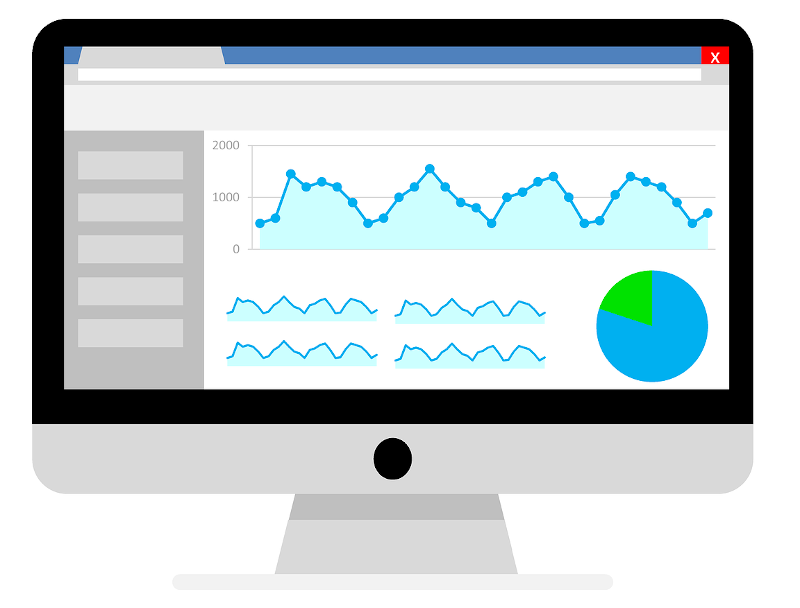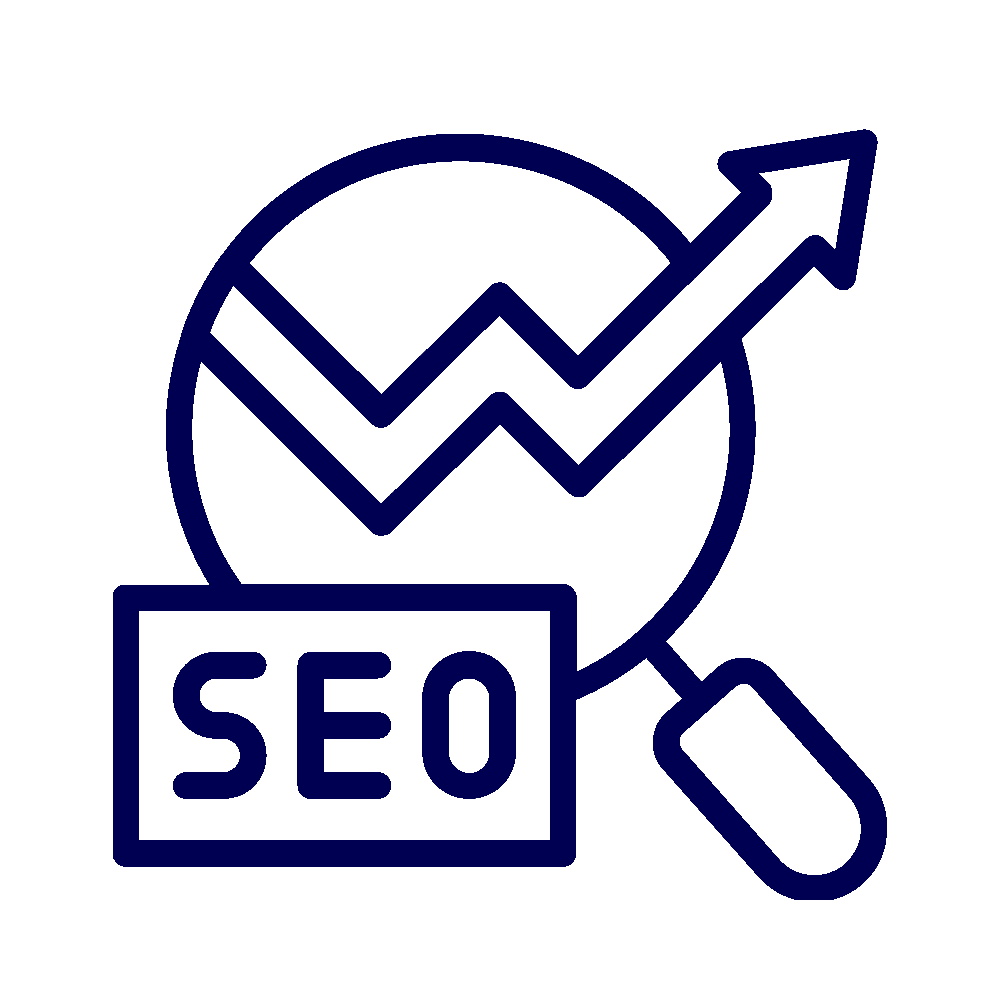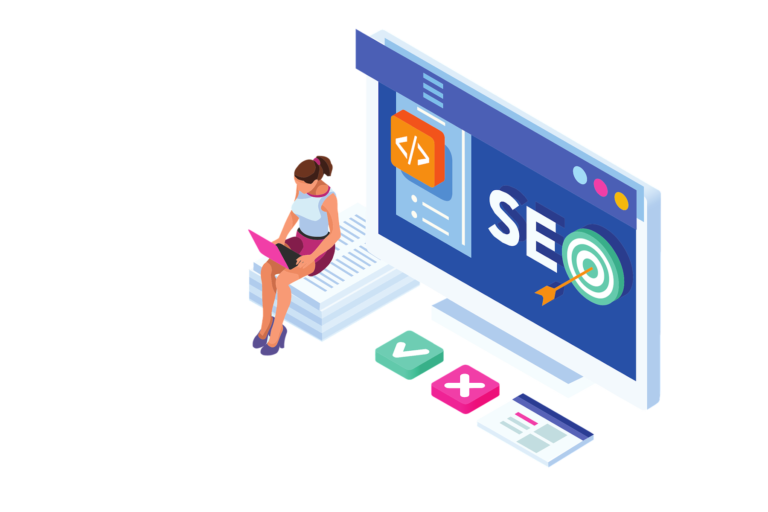Is SEO Worth It For Small Business?
Yes, but there’s a big “but”…
There’s a running joke in the world of SEO professionals, no matter what question you ask, big or small, the answer is always, “it depends.”
So, while I’d love to climb to the top of a skyscraper and yell “YES!” to this question, I’d also need to explain why and that’s what this article is for.
But before we get into all that, let’s clear up a few common misconceptions.
Misconception #1: Visitors = Profit
Most SEO companies love to show off one thing; how many people are visiting your website.
They’ll say things like, “Look! Your traffic is going up! That must mean we’re doing a great job, right?”
But here’s the truth: I know plenty of businesses that had more people visit their website, but didn’t get any new customers. Some even made the same amount of money as the year before, even though they had 25% fewer visitors back then.
Here’s the big problem:
Just because more people are coming to your site doesn’t mean your sales will go up.
So, what’s going wrong? You’re paying for SEO and seeing more visitors, so why aren’t you getting more business?
Because most of those visitors aren’t the right people.
For example, if you check your Google Analytics (Audience > Geo > Location), you can see where your visitors are coming from. If you’re a local business, traffic from other countries or even other cities might not help you at all.
Let’s say you’re based in Perth. Visitors from Sydney probably aren’t going to become your customers.
Try this: add a filter to only show traffic from your local area. You might be surprised how small that number really is.
So yes, SEO brought in more people, but not the ones who actually need your business

Misconception #2: All SEO Is Equal
To understand what I mean by “relevant visitors,” we first need to talk about how Google and Bing work.
Search engines, like Google, help people find answers. When you type something like “mountain bikes” into Google, it shows you a list of websites that match what you typed. That phrase “mountain bikes” is called a keyword.
But there are lots of different ways someone might search for bikes. For example:
- “Mountain bikes”
- “Mountain bikes under $1000”
- “Mountain bikes Sydney”
Each of those searches brings up different results. Why? Because each person is looking for something slightly different.
Someone who types just “mountain bikes” might be browsing for fun or looking for pictures. But someone who types “mountain bikes Sydney” is probably looking to buy a bike in Sydney. That person is much more likely to become a customer.
So here’s the important question: Which visitor do you want coming to your website?The one who just wants to browse? Or the one ready to buy?
Obviously, the one who’s ready to buy.
That’s why a good SEO agency focuses on what people mean when they search, this is called search intent. If you don’t pay attention to that, you could end up getting lots of clicks but no new customers.
But here’s the tricky part; Google doesn’t always tell you what people typed when they found your site. They used to, but now most of that information is hidden in Google Analytics. Some people think this change helped Google make more money from ads.
So in the end, it’s not just hard to get the right visitors to your site, it’s also hard to tell if the visitors you’re getting are actually helping your business grow.
That might be why your traffic numbers are going up, but your sales and profits are staying the same.
Misconception #3: Ranking For Specific Keywords
A few years ago, SEO was a lot easier. You could aim for very specific keyword phrases and actually show up in search results for them.
These days, it’s a lot harder to be that exact.
Sure, SEO agencies will still try to target those specific phrases, but in the end, it’s Google that decides what your site shows up for and what it doesn’t.
And that’s a huge deal.
Why? Because Google can change the rules any time they want. And when they do, your rankings can vanish overnight.
Sounds crazy, right?
But it really happened.
Google made big changes called the Panda and Penguin updates. These updates completely shook things up. Some businesses spent thousands of dollars on SEO, only to see all their progress disappear. They had to start all over again.

Ouch. Thanks a lot, Panda.
With The Rise Of ChatGPT Is SEO Dead?
No way. Businesses are still making money because Google and Bing show them at the top of search results.
But things are starting to change, especially for websites that used to get lots of visitors by answering common questions.
Why? Because now you can ask tools like ChatGPT or Bing Chat something like “recipe for roast chicken” and get the answer right away, without having to click on any websites.
That means less traffic for websites that used to rely on search engines to bring people in. And as more people get used to using chatbots, some websites will lose visitors and some industries will feel it more than others.

So, some old SEO tricks that used to work really well just don’t work anymore. It used to be easy to boost your website to the top of Google without spending much money. Not anymore.
If you check the company email, you’ve probably seen messages from companies (often from overseas) promising to get your website on page one of Google for only a few hundred bucks a month. That used to work years ago, but now, it’s useless.
Don’t fall for it. It could actually hurt your site’s reputation with Google and that’s the last thing you want.
The Pros And Cons of SEO
Everything has good and bad sides and SEO is no different. It works well for different things, depending on what you want.
For example, SEO can help your business grow over time and even bring in loyal customers. But it can also cost a lot of money and take a while before you see any results.
Pro: Builds Reputation
If your website shows up for more search terms, more people will see it, especially at different times when they’re thinking about buying something. Whether they’re just looking around, getting interested, or ready to buy, showing up more often helps people remember you. It also helps you rank for more keywords and makes your business look more trustworthy.
Con: Takes A Long Time
And I mean it takes a really long time, grass might grow faster than seeing results on Google! It can take 3 to 6 months before you notice any changes, and that depends on lots of things.
This creates a tough situation. Many businesses can’t afford to wait that long because they still have expenses like rent and loan repayments. But at the same time, getting found on Google is one of the most effective ways to attract new customers.
Pro: Long Term Results
A well-written article can deliver excellent results. For example, we created a piece on “air-conditioner prices” for a client, and it quickly became one of the most visited pages on their website. It attracted a significant number of potential customers interested in installing air conditioners in their homes.

Con: Results Are Not Guaranteed
Nobody’s perfect, and like a famous captain once said, “It is possible to commit no mistakes and still lose. That is not a weakness. That is life.” You can do research to try and avoid mistakes, but sadly, there are no guarantees. That’s what makes this downside so tough to deal with.
Pro: Business Growth
If you want people to find your business, you need to show up on Google and that means doing SEO. It helps the right people find you, learn about what you do, and connect with your business, which can help you grow.
Con: Can Be Expensive For Small Teams
If you run a two-person business, and one person handles SEO while the other focuses on clients, it can feel like too much for both people. SEO takes a lot of time, energy, and focus, and it can easily become overwhelming.
Pro: Builds Trust With Your Audience
Ranking higher on Google helps build trust with potential customers. According to Semrush, 71% of consumers read online reviews when researching a business. Think about it when you last looked up a business, you probably read the reviews too.
Con: Time Consuming
I’ve said it many times, doing SEO is like having a full-time job. Even though organic SEO doesn’t cost money, it takes a lot of time. For small business owners, that time can be expensive, especially when you also need to focus on helping your clients

Is It Worth Doing Despite The Cons And Misconceptions?
After looking at the common drawbacks and misconceptions, you might be asking yourself, “Is SEO still worth it for my small business?” The answer remains yes.
With 99% of Australian adults using the internet and 94% of them accessing it through their mobile phones, an online presence is essential in today’s digital world. SEO helps ensure your business is visible where your audience is looking.
While it’s important to understand the challenges, they shouldn’t be a reason to avoid SEO altogether.
Essential Tips To Boost Your Small Business SEO
If you’re looking for a full step-by-step guide on how to do SEO, you can check it out here. These are just a few tips to help you get started.
1. Conduct Thorough Keyword Research
Knowing who your ideal customers are is super important. Start by thinking about the words they might type into Google to find your services. Tools like Ahrefs Keyword Generator or Google Keyword Planner can help you figure that out.
Try using longer, more specific keywords. For example, instead of just using the word “marketing,” you could use something like “affordable digital marketing for small businesses in Brisbane.” These kinds of keywords help your website show up in better searches and bring in people who are more likely to become customers.
2. Optimise Your Website Structure
A well-organised website makes it easier for people to use and easier for search engines like Google to understand.
Make sure your website has a clear structure, with main sections and smaller sections underneath that match your services.
Use simple and clear website links (URLs) that include helpful words. For example, instead of using a link like ‘10amdigital.com.au/services’, try something like ‘10amdigital.com.au/seo-agency/’, it tells people (and search engines) more about what the page is about.
3. Create Quality Content Regularly
In SEO, content is one of the most important things. Posting helpful and interesting blogs or articles regularly can show people that you know what you’re talking about and it also helps your website show up better in search results.
Use your keyword research to help you decide what to write about. For example, you could write a blog called “Top 5 SEO Strategies for Small Businesses” and include your keywords naturally in the post.

4. Leverage Local SEO Techniques
For small businesses, local SEO can help more people in your area find you. Make sure you’ve claimed your Google Business Profile and that it shows the correct details like your opening hours and address.
Ask happy customers to leave good reviews on your Google page and other review sites. When you reply to reviews, it shows new customers that you care about what people think.
5. Monitor Your Seo Performance
It’s important to check how your SEO is doing so you know what’s working and what needs fixing. Tools like Google Analytics and Google Search Console can help you see how many people visit your site, what they do there, and how well your keywords are performing.
Set clear goals like getting more visitors from search engines or ranking higher for certain keywords. Then, use the information you collect to improve your strategy.
6. Build Backlinks To Your Site
Backlinks are important because they help show search engines that your website is trustworthy. One way to get backlinks is by working with other websites or blogs in your industry, like writing a guest post or sharing helpful content together. This helps more people find your site and brings in more visitors.
You can also team up with local groups or events. For example, if you sponsor a community event, your business might get mentioned on a local news website. That kind of mention can help your SEO, too.

Conclusion
Rephrase this, so 6th grader can understand it:
Yes, SEO is definitely worth it for small businesses, offering undeniable benefits like strong brand identity, sustainable long-term growth and cost-effective lead generation.
However, it’s important to remember the caveats: SEO is a long-term commitment and might not suit businesses that need quick wins.
Balancing SEO approaches like link-building and content creation with other marketing strategies can provide immediate results while laying the groundwork for future success.







